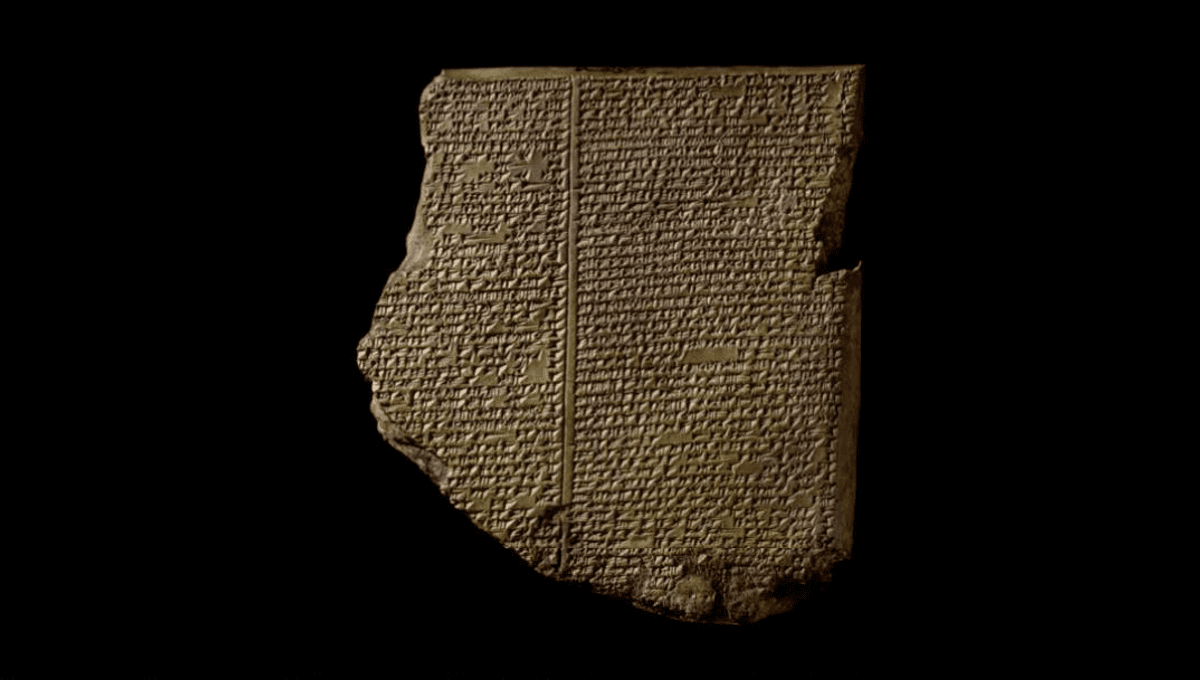
Researchers have crafted an artificial intelligence (AI) system capable of deciphering fragments of ancient Babylonian texts. Dubbed the “Fragmentarium,” the algorithm holds the potential to piece together some of the oldest stories ever written by humans, including the Epic of Gilgamesh.
The work comes from a team at Ludwig Maximilian University in Germany who have been attempting to digitize every surviving Babylonian cuneiform tablet since 2018.
The problem with understanding Babylonian texts is that the narratives are written on clay tablets, which today exist only in countless fragments. The fragments are stored at facilities that are continents away from each other, such as the British Museum in London and the Iraq Museum in Baghdad.
On top of these hurdles, the texts are written in two complex writing systems, Sumerian and Akkadian, making the task of compiling the texts all the more taxing.
Researchers previously deciphered the texts by copying the characters onto paper, then painstakingly compared their transcripts with others to see which fragments belong together and where to fill in the gaps.
Fragmentarium makes this process a whole lot easier. From the 22,000 text fragments that have been digitized so far, the AI can sift through the images and systematically assemble text fragments together by making connections in seconds that would typically take human researchers months.
“It’s a tool that has never existed before, a huge database of fragments. We believe it is essential to the reconstruction of Babylonian literature, which we can now progress much more rapidly,” Enrique Jiménez, Professor of Ancient Near Eastern Literatures at the Institute of Assyriology at Ludwig Maximilian University, said in a statement.
In November 2022, the software recognized a fragment belonging to the most recent tablet of the Epic of Gilgamesh, the world’s oldest surviving piece of literature dating back to 2100 BCE. The most famous parts of this epic poem describe a great catastrophic flood, which is thought to be the origin of the Noah’s Arc story found in Genesis.
In another breakthrough, Jiménez and a colleague from Iraq identified a hymn to the city of Babylon with the help of Fragmentarium. Jiménez explains: “The text is lovely. You can imagine the city very well. It describes spring arriving in Babylon.”
“Hitherto there have been no hymns to cities in Babylonian literature. Now we have found 15 new fragments of it. Without the Fragmentarium, the reconstruction would have taken 30 or 40 years,” he adds.
The hymn reads as follows:
“The river Arahtu,
– created by Nudimmud, the Lord of Wisdom – Waters
the plain, drenches the reeds,
Pours out its waters into lagoon and sea.
It’s blooming and green on his fields,
The meadows shimmer with fresh grain;
Thanks to him the corn piles up in heaps and heaps,
Grass grows high for pasture for the flocks,
With riches and splendor befitting mankind,
[All is] covered in glorious abundance.”
So far, just 200 researchers from around the world have used the online platform for their work. However, as of February 2023, Fragmentarium will be free for the public to use.
“Everybody will be able to play around with the Fragmentarium. There are thousands of fragments that have not yet been identified,” says Jiménez.
Source Link: AI Deciphers Ancient Babylonian Texts And Finds Beautiful Lost Hymn